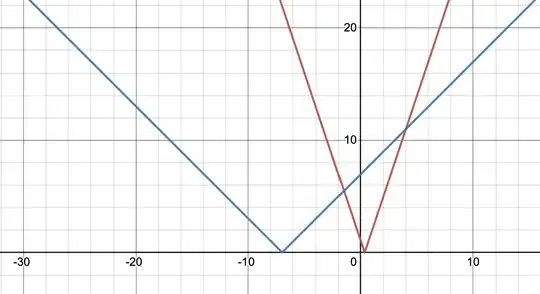Let's start with the basics. If $n+7$ is to be divisible by $3n-1$, then $n+7\ge 3n-1$, which of course means $8\ge 2n \Longrightarrow n\le 4$. Because the question specifies that $n$ be a positive integer, that leaves you with four cases to check: $n \in \{1,2,3,4\}$.
Addendum:
just for fun, let's work out every possible integer value for $n$, not just the positive ones. To do this we will use a modified form of the above argument.
If $n+7$ is divisible by $3n-1$, then $|3n-1|\le |n+7|$. By the definition of absolute value, $|3n-1| = 3n-1$ when $n\ge1/3$ and when $n\lt1/3$, it is equal to $1-3n$. On the other hand, $|n+7| = n+7$ when $n\ge-7$. These facts combine to yield the following set of inequalities over a set of intervals, and we will use these to bound the possibilities for $n$.
Case 1: $1/3 \le n$
I already solved this in my original answer, but it's worth going over again. If $n\ge1/3$, then $|3n-1|\le |n+7| \Longrightarrow 3n-1\le n+7 \Longrightarrow n\le 4$.
Case 2: $-7\le n \lt 1/3$
In this case, the inequality $|3n-1| \le |n+7|$ becomes $1-3n \le n+7$. Solve this for $n$ and you get $-6\le 4n$, or $n\ge -3/2$. Since $n$ has to be an integer, that leaves us with two new possibilities to check: $n=-1$ and $n=0$. If $n=-1$, then $n+7 = 6$ and $3n-1 = -4$. $6$ is not divisible by $-4$, so $n=-1$ is a bust. However, $n=0$ does work (try it for yourself!)
Case 3: $n\lt-7$
When $n\lt-7$, $|3n-1|=1-3n$ and $|n+7| = -n-7$, so $|3n-1|\le|n+7| \Longrightarrow 1-3n \le -n-7$. This implies that $8\le2n$, or that $n\ge 4$. However, $n$ cannot simultaneously be less than $-7$ and greater than $4$; this is a contradiction. Therefore there are no integers $n$ less than $-7$ such that $3n-1$ divides $n+7$.
In full: if $n$ is to be any integer, not just a positive one, such that $3n-1|n+7$, then $n\in \{0,1,4\}$
